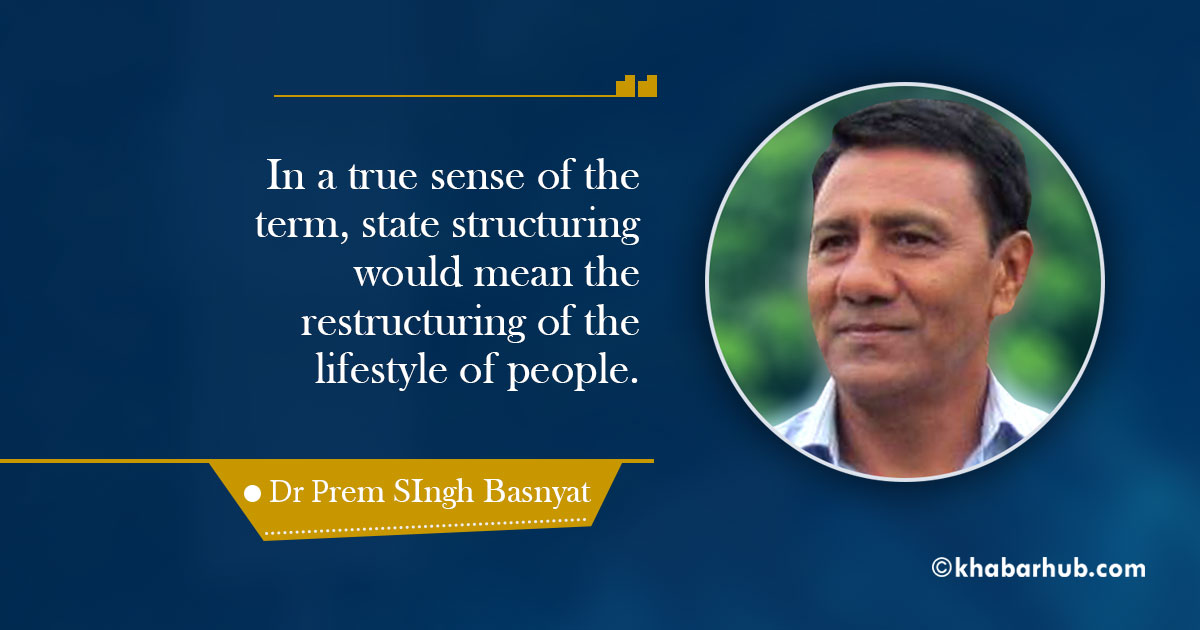Nepal’s ongoing condition is not just of political stalemate; it is rather an imposition of foreign strategic bulldozing over Nepal. The current problem gnawing Nepal is more stemmed of strategic vengeance than just an internal one. Three dimensions of the Western power struggle as described have connection herein.
The intent is to use the fragile geopolitical strategic condition of Nepal. That’s it. In order to implement this design, they want Nepal to be a failed state first so that they could come to Nepal to ‘play’. Therefore, the inherent wish of the Western power play offers a clue as to how it could solve its problem that always aches like a hanging tooth.
How Nepal came under preference of the Western power center is very important. The reasons are here: Nepal since long have been influenced by India, and it is easy to play over Nepal, there are easy passes to Tibet from Nepal, a good number of Tibetan refugees who can be incited against China, live in Nepal.
Nepal is a country having an influence of leftist forces which are easy to use as a card to play against its northern neighbor. It is also a pseudo-neo-colonial country with salable bureaucracy is easy to use, because most Nepalis are poor, they are easy prey at use to incite war and finally, many of the Nepalese scholars are ready to work as “ Fifth columnist” for money.
The things unfolded in succession say, for example, induction of neo-liberalism, foreign employment policy, Madan Bhandari murder scam, the Maoist rebellion, the Royal Palace massacre, the much-hyped 12-point agreement, Comprehensive Peace Agreement (CPA) have a connection to one another.
Several things such as collapse of its economy in the name of neo-liberalism, the collapse of Nepal’s employment policy by clever design of the escape of potential human power for foreign employment, Dashdhunga murder to turn the UML party to a network of INGOs to use them as their agents, the Maoist rebellion to weaken and collapse the social infrastructures, and the Royal Palace massacre to splinter the state power center, and the 12-point peace agreement to offer entire Nepal as a playground to serve someone’s interest are just the fall out of the events from the same source.
The fifteen-year series of achievement begun from 1991 till 2006 has now been given a new name of ‘state structuring’. In a true sense of the term, state structure would mean the restructuring of the lifestyle of people. It is in fact compartmentalization of the country as prescribed by the foreigners. The overall compartmentalization includes compartmentalization of history, geographical compartmentalization, and compartmentalization of society.
In this imported and borrowed prescription of state structuring, there is no restructuring of anything else, just disintegration of the country and its systems. The new terms such as ‘political mechanism’, ‘high profile meeting’, ‘consensus of the political parties’, among other slogans have been set as a virus to collapse the norms, systems, values, and laws of the elected institutions. The foreigners have put all their energy to pump up the agents.
Like elsewhere, the campaign to collapse Nepal’s history, culture, language, lifestyle and moral standards to plant their values in order ultimately to have Nepal surrender to them, is going full force. Now in an excuse of ‘state restructuring’, no small attempt is being made to misinterpret the accommodative eastern religious and cultural mainstream as religion and culture of ‘negation’ by erroneously defining the unification of Prithvi Narayan Shah as nation-states, misinterpreting federalism as federalism with right to self determination, so on and so forth.
They are misinterpreting ‘identity’ as above the state. Owing to a combination of such interest, hubris of ‘whole of South Asia as one India’ and several other illusions, India offers itself as a space for them without its notice and knowledge. They are fielding it to get their work accomplished in the region.
They played India to organize the Tamils and later turned the Tamils against India like a loaded gun. The Terai in Nepal is likely to have the same or similar syndrome. Nepal is one easy card of use for the West to get their work done over the region, and because they take India as a reliable medium of their Asia Strategy, the crisis of Nepal came to be called ‘Indo-Asiatic Chapter’.
India has neither a friend nor a foe; it is their interest that determines friend or foe to them. They play India for their interest. That’s it. There are multiple reasons why Nepal wore down weak prey against the expansionists. The neo-colonial Indian strategic umbrella after the 1950 Treaty, the post-1950 political change, the imported automated schooling, feudal nature of state machinery, the network of bipartite and tripartite unfair treaties, Nepal’s porous border with India all combine to complicate Nepal’s problems.
Such problems always hindered at the formulation of viable foreign policies based on the ground realities of the country. If Nepal is to seek out solution of the problems, then it has to rethink its long-held equidistance foreign policy, tilting to neither side, consider India, China, Europe, and America as four pillars, and identify other Asian countries than India and Nepal’s manpower destination countries.
External powers love Nepalese geography, not Nepal. It should once review and revise its foreign policies to update them to cope with the emerging needs.
Views expressed in this article are the author’s own and do not necessarily reflect the stance of Khabarhub.









Comment